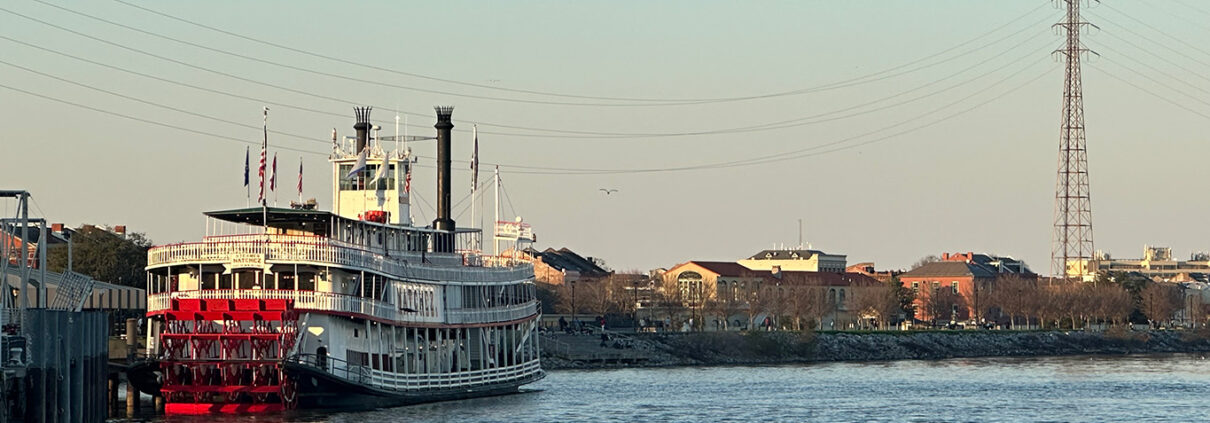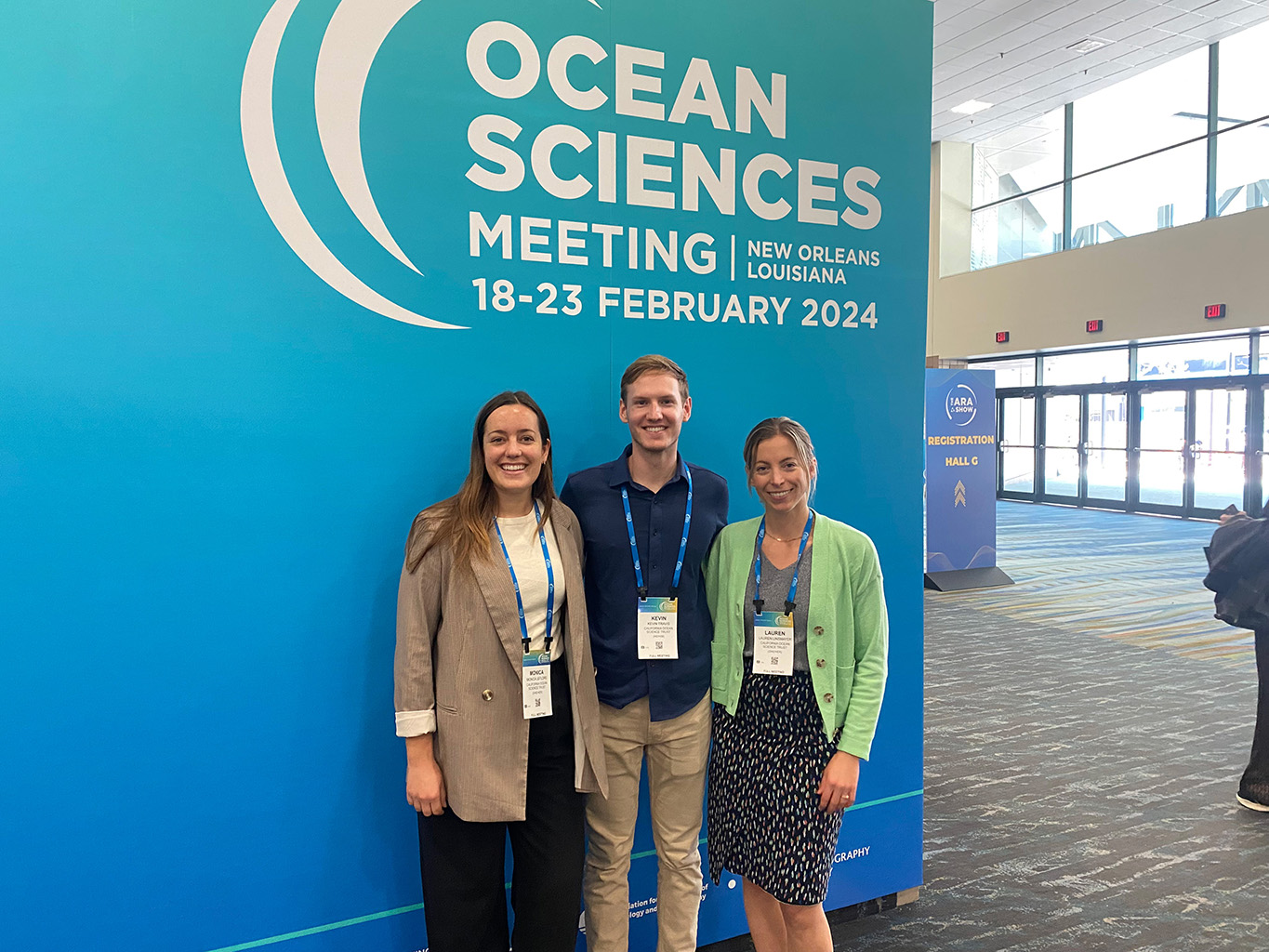Every two years, the oceans community gathers at the Ocean Sciences Meeting (OSM) to connect scientists from around the world, share current research, and collaborate on priorities for the ocean sciences sector. This year, OSM was held in New Orleans, Louisiana from February 18-22. OST was able to send myself and two other staff, Science Officer Kevin Travis and Senior Science Officer Dr. Lauren Linsmayer, to track recent work across several of our project priorities and connect with our ocean science community.
It feels impossible to convey the breadth of topics addressed by the variety of panel sessions, town halls, workshops, and conversations I took part in this week. Instead, I’ll share four concepts that surfaced over and over again throughout the week that I’ll be bringing back to the Ocean Science Trust team for discussion about how these concepts apply to our role as dot-connecters in the science-policy space.
Without further ado, here are four takeaways I can’t stop thinking about since attending OSM:





